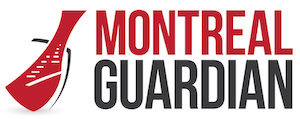You might have heard the term ‘mutual aid’ in the advent of 2020’s Black Lives Matter protests, as the COVID pandemic shut down the world. The term describes individuals helping other individuals, in the form of monetary donations or other, more direct, help. Today’s calls for mutual aid are often spread through social media, anonymized, and hosted in online crowdsourcing platforms. It’s a response to the limits of social safety nets, supporting individuals through food insecurity or helping them transition to more formal governmental support. But it’s only a momentary relief if not a permanent solution. The key question here is, what are the possibilities and limitations of mutual aid? What’s the mutual aid landscape in Montreal? How can you help?

The term ‘mutual aid’ dates to the Russian anarchist and thinker Petr Kropotkin, from his 1902 collection of essays of the same name: “Mutual Aid: A Factor of Evolution”. Kropotkin presented a counterpoint to the Darwinian characterization of nature as an aggressive and competitive struggle for resources, that pits individual organisms against each other in a fight for ‘survival of the fittest’. Kropotkin argued that cooperation and reciprocity were also an evolutionary advantage in the struggle for survival. In fact, the more complex the organism and its societies, the more likely that collaboration and cooperation are the driving forces of survival in them. This was the cornerstone of his anarchist values: that independent and consensus driven communities could thrive through reciprocity and cooperation.
Mutual aid means something slightly different today. Thanks to online platforms such as gofundme and indiegogo, individuals can set up campaigns such as this one, which are often spread on social media to tap into informal networks of family and friends. It’s a way to donate and support your community directly, especially when you have enough to share, be it money, time, or resources. And it is an especially direct way to give support to those who have a different (maybe more challenging) experience, be it because of socio-economic status, race, gender, disability, etc. In Montreal, there are multiple ways you can get involved, either tapping into your own networks or joining Montreal’s Mutual Aid Facebook group. Started during the pandemic by the mutual aid advocate and community organizer Griffin Payne and moderated by a dozen other administrators, it is now a frequent hub to seek and give support. Another group focuses on LGBTQ persons specifically.
In the past ten years, mutual aid has also become a response to the growing disparity between the richest and the poorest and, in contrast to donating to charitable organizations, fits within a broader politics of wealth redistribution. BLM’s mutual aid initiatives are a way to support people who might be disproportionately affected by the pandemic due to the impact of structural racism: throughout the pandemic, black people have been impacted by higher unemployment rates, eviction notices, and COVID-19 hospitalizations.
Mutual aid is no utopia. The peer-to-peer aspect means that there is little oversight on who is donating and how the money is being managed. It can also put a lot of pressure on community organizers, who usually contribute in a voluntary and unpaid capacity. Allister Trudel, administrator of Montreal’s Mutual Aid group, explains that the team have had to address volunteer burnout to keep it going. Campaigns that pair with activist and charitable organizations can therefore support community organizers and give accountability to each initiative, as well as funnel donations towards those who might most need it, like Centraide of Greater Montreal.
But perhaps the biggest limitation of mutual aid is that it is a momentary treatment to a system wide illness. No amount of donations can help us deal with inflation, stagnating wages, gentrification, structural inequality, and wealth disparity. Mutual aid is a grassroots response to the failures of social safety nets, filling in the spaces left behind by their gradual erosion. If the anarchist in you wants to create reciprocal and cooperative communities, seeking mutual aid campaigns on top of donating to organizations is one of the ways you can make a difference. But if we vote for politicians that sacrifice healthcare, education and welfare systems, no amount of mutual aid will make up for their failure.
